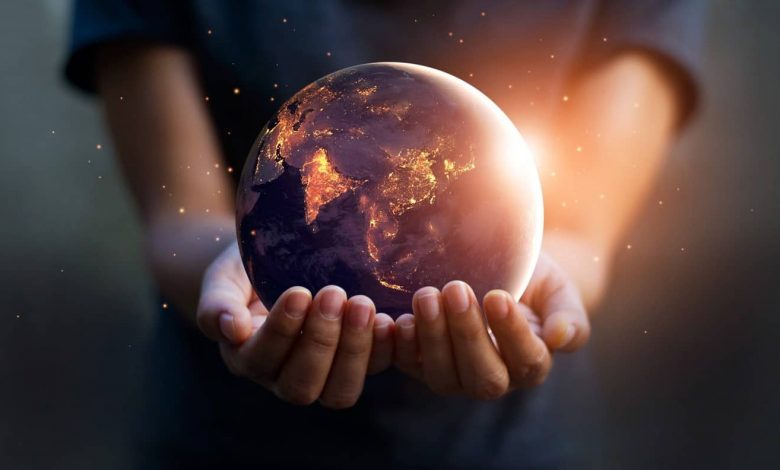Understanding Global Affairs Issues


(2311shahbaz@gmail.com)
Global affairs issues are multifaceted challenges that impact countries and populations worldwide. These include political, economic, social, and environmental problems that require international cooperation to resolve.
Significance of Addressing These Issues
Addressing global affairs issues is essential for fostering international stability, peace, and prosperity. By understanding and tackling these problems, we can work towards a more harmonious global community.
Historical Background
Global affairs issues are not new. Historical events like wars, colonialism, and trade disputes have long shaped international relations and conflicts.
Evolution Through the 20th Century
The 20th century saw significant changes with the formation of international organizations and the advent of globalization, leading to more interconnected global affairs issues.
Major Global Affairs Issues Today
Climate change is a critical issue, affecting ecosystems, weather patterns, and sea levels. It poses severe threats to global stability and requires urgent international action.
Global Health Crises
Pandemics, such as COVID-19, have highlighted the importance of global health cooperation. Health crises can rapidly spread across borders, necessitating coordinated international responses.
International Migration and Refugees
Conflicts, economic disparities, and environmental changes drive international migration and refugee crises. These issues require global policies and humanitarian efforts to address.
Cybersecurity Threats
The rise of digital technology has brought about significant cybersecurity threats. International cooperation is essential to combat cyber-attacks and protect digital infrastructure.
Economic Disparities
Economic inequality between and within countries remains a pressing global issue. Efforts to reduce disparities are crucial for achieving global economic stability and fairness.
Key Players and Their Roles
Governments play a pivotal role in shaping global affairs through foreign policies, diplomacy, and international agreements.
International Organizations
Organizations like the United Nations (UN), World Health Organization (WHO), and International Monetary Fund (IMF) facilitate international cooperation and address global issues.
Non-Governmental Organizations (NGOs)
NGOs such as Amnesty International and Greenpeace advocate for various global causes, influencing policies and raising awareness.
Private Sector and Multinational Corporations
Companies like Google, Amazon, and Tesla significantly impact global affairs through economic activities and technological advancements.
Climate Change
Human activities, such as burning fossil fuels and deforestation, are major contributors to climate change. Its consequences include extreme weather events, loss of biodiversity, and rising sea levels.
Global Initiatives and Agreements
International agreements like the Paris Agreement aim to mitigate climate change by setting targets for reducing greenhouse gas emissions.
Future Prospects and Solutions
Sustainable practices, renewable energy, and technological innovations are key to combating climate change and ensuring a healthier planet.
Global Health Crises
Health crises, like pandemics, can have devastating global impacts. Effective international health cooperation is crucial for managing and preventing such emergencies.
International Health Cooperation
Organizations like the WHO coordinate global health efforts, providing guidelines, resources, and support during health crises.
Strategies for Future Preparedness
Investing in healthcare infrastructure, research, and early warning systems can enhance global preparedness for future health emergencies.
International Migration and Refugees
Migration is driven by various factors, including conflicts, economic opportunities, and environmental changes.
Challenges Faced by Migrants and Refugees
Migrants and refugees often face significant challenges, such as legal barriers, discrimination, and lack of resources.
Global Response and Policies
International policies and humanitarian aid are essential to support and integrate migrants and refugees, ensuring their safety and well-being.
Cybersecurity Threats
Cyber threats, including hacking, data breaches, and cyber warfare, are increasing in frequency and sophistication.
International Cooperation on Cybersecurity
Countries must collaborate to develop and enforce cybersecurity measures, sharing information and strategies to combat cyber threats.
Measures to Enhance Cybersecurity
Implementing robust cybersecurity protocols, educating the public, and investing in technology are crucial steps to protect against cyber threats.
Economic Disparities
Economic inequality remains a significant challenge, with disparities in wealth and opportunities both between and within countries.
Efforts to Reduce Economic Disparities
International initiatives, such as fair trade practices and development aid, aim to reduce economic inequalities and promote global economic stability.
Future Economic Trends and Solutions
Advancements in technology, education, and policy reforms can help bridge economic gaps and create more equitable opportunities worldwide.
The Role of Media in Global Affairs
Traditional media outlets shape public opinion and policy decisions by reporting on global issues and events.
Social Media’s Impact on Global Issues
Social media platforms have transformed how information spreads, influencing global affairs by enabling real-time communication and mobilizing social movements.
Future Trends in Global Affairs
Emerging technologies, such as artificial intelligence and renewable energy, will significantly impact global affairs and problem-solving.
Shifts in Global Power Dynamics
Geopolitical shifts, like the rise of China and changing alliances, will influence future international relations and policies. Global affairs issues are complex and multifaceted, requiring international cooperation and innovative solutions. By understanding these challenges and working together, we can create a more stable, prosperous, and sustainable world.





